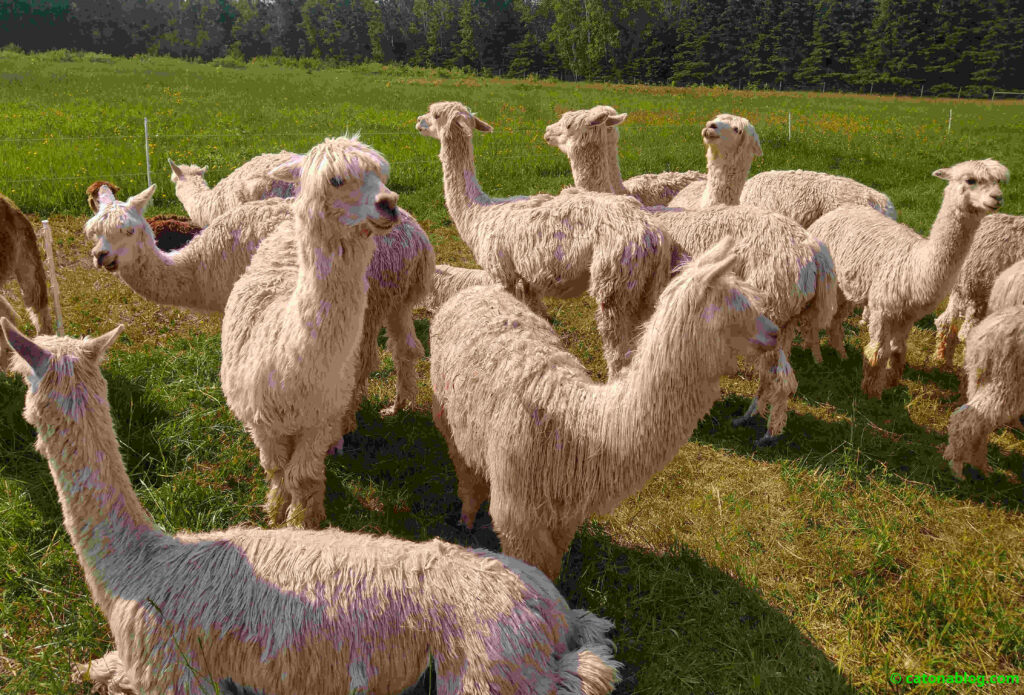
Jul 21st, 2023 Friday Sunny
During our visit to the Apostle Islands in mid-June, we did plenty of hiking, kayaking, and eating seafood. However, we wanted a change on our last day, so I looked through local business listings to find something interesting while my husband dozed off on the bed. I came across an alpaca farm. Although petting some alpacas was not what I envisioned for a vacation near the largest lake in North America, I decided to check it out.
It was a living farm, with about twenty alpacas. The owners, a couple about our age, took care of everything on the farm – growing vegetables in their greenhouse for the community, herding the alpacas to provide wool that they sent somewhere to make into high-quality yarns, and managing a small business where they sell some alpaca products and give tours.
We were the only guests for the afternoon tour, so we walked with the owner lady to the area that the alpacas were grazing. Wow! I was amazed by what I saw.
Upon hearing their “mom” approaching, the alpacas gathered around us. The lady introduced us to each one, addressing them by their names. At first I was wondering how she could tell them apart, but soon I realized that these animals looked very different one from another, and they also showed different personalities. They did not seem to mind us for the most part, so they must be very used to this lifestyle of co-habitation with humans. Nevertheless, they did not act like pets – the moment I tried to scratch their back or their neck, they turned away from me 🙁 Occasionally I got my petting desire satisfied by distracting one easy-going alpaca with really tasty treats (i.e. alfalfa pallets) 😛
“It must be a lot of work to look after everything here.” I commented with the lady owner.
“Yes, though these guys are generally well-behaved. They know the rules. We let them into the grasslands in the morning, they hang out and eat all day, then we hush them back to the barn for the night. Their grazing and pooping keep the land healthy.” She pointed to areas frequented by the alpacas a couple of months ago – the grass were visibly taller and greener than the surroundings.
“What if they are being naughty?” asked my husband.
“Well, we try to train them to be good, but some may not have the right temperament. Then we harvest them.” the lady said in a matter-of-fact tone.
HARVEST them? I immediately understood that is the source of the alpaca meat. I am by no means a vegetarian. Still, having heard the lady talk about the alpacas as if they were her kids, I was appalled at the concept of “harvesting” these furry companions, but in reality, this is the typical relationship that humans have with farm animals. We give them food and shelter, we watch them live through the seasons, and when it is time, they give back by nourishing us with their meat and fur.
Unlike having a pet, this relationship is mutually beneficial – the alpacas depend on us, and we also depend on them. Unlike factory-raised animals, these animals were treated nicely in their lifetime, living like alpacas rather than meat/milk-producing machines, so they were truly part of the circle of life.
When we said goodbye to the owner lady, she was trying to identify the cause of pain that one female alpaca, Charlotte, was experiencing. We gave her and the poor Charlotte the best wishes, and bid them farewell. I hope that some day, we get to learn more about these fine creatures.